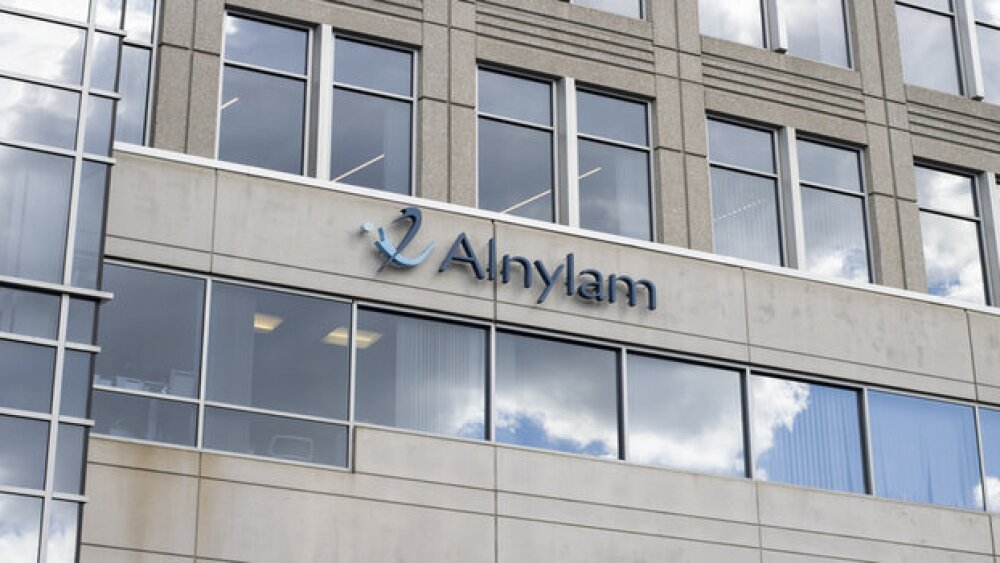Alnylam Pharmaceuticals is modifying the primary and secondary endpoints of the Helios-B Phase III trial investigating its next-generation RNA interference therapy in patients with ATTR amyloidosis with cardiomyopathy.
Pictured: Alnylam building in Cambridge, Massachusetts/iStock, hapabapa
Alnylam Pharmaceuticals will be adjusting the endpoints for a Phase III trial of its next-generation RNA interference therapy Amvuttra (vutrisiran) in patients with ATTR amyloidosis with cardiomyopathy, the biotech announced during its earnings release on Thursday.
The company announced that for its HELIOS-B Phase III study of vutrisiran in patients with ATTR amyloidosis with cardiomyopathy it is conducting “updates” to its primary and secondary endpoints. In addition, Alnylam now expects to drop the topline results in June or July 2024.
In a Thursday note to investors, Mizuho Securities analyst Salim Syed said that while the changes to the trial may be driven by what Alnylam learned from a previous trial, “companies don’t just change stats plans unless they feel like they need to.”
Syed noted the new plan for Alnylam includes three more months of observation, taking the mark to 33 months. As part of Thursday’s announcement, the company will also look at long-term data from its APOLLO-B study.
“I believe this extension is the biggest likely tell that HELIOS-B event rates weren’t where Alnylam wanted them at 30 months,” Syed wrote. “Modifying the methodology to analyze the primary endpoint (recall, a composite outcome of all-cause mortality and recurrent CV events), which now will be analyzed in all patients and in the monotherapy patients (that is, patients not on a tafamidis at baseline)—the monotherapy bit is also fascinating here, and we argue this should have been done with the starting protocol.”
While no other details were released, Amvuttra remains a significant product in Alnylam’s pipeline. The drug was approved in 2022 to treat transthyretin-mediated (hATTR) amyloidosis in adults.
The biotech also gave some details of its APOLLO-B study, which investigated patisiran as a treatment for cardiomyopathy in ATTR. The drug did meet its primary endpoint, slowing the decline in the six-minute walk distance at 12 months against the placebo and showing improvement in secondary endpoints.
However, the FDA still denied the approval of the label extension for the drug as the agency said Alnylam did not provide enough evidence for the therapy’s benefit in the indication.
“We will focus our efforts in other regions to submitting an sNDA for vutrisiran, assuming positive results from the ongoing HELIOS-B study. As a reminder, HELIOS-B is studying a similar population as APOLLO-B, but is designed for a primary outcomes endpoint of all-cause mortality and recurrent CV events,” Alnylam CMO Pushkal Garg said on Thursday’s earning call.
Tyler Patchen is a staff writer at BioSpace. You can reach him at tyler.patchen@biospace.com. Follow him on LinkedIn.






